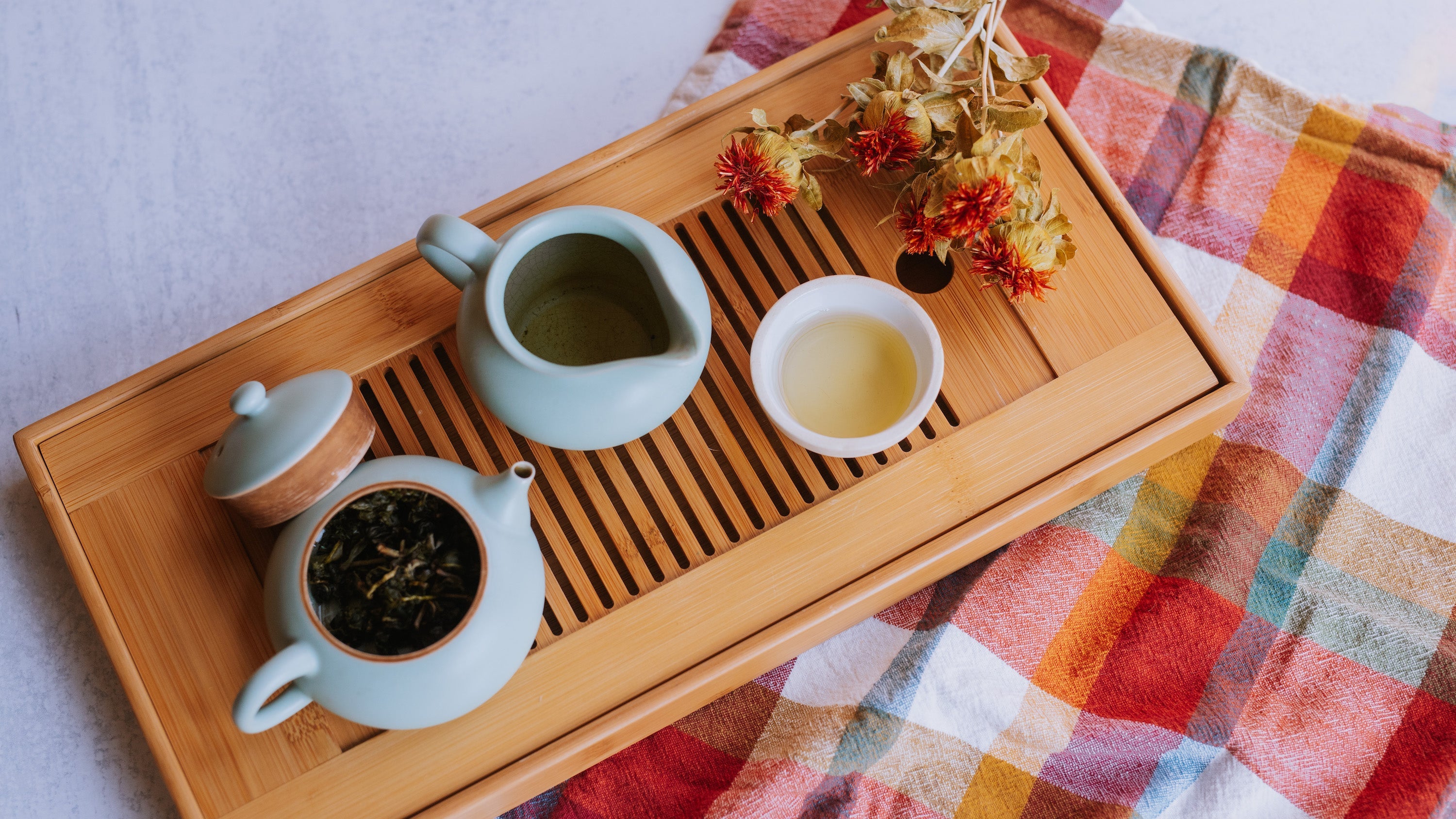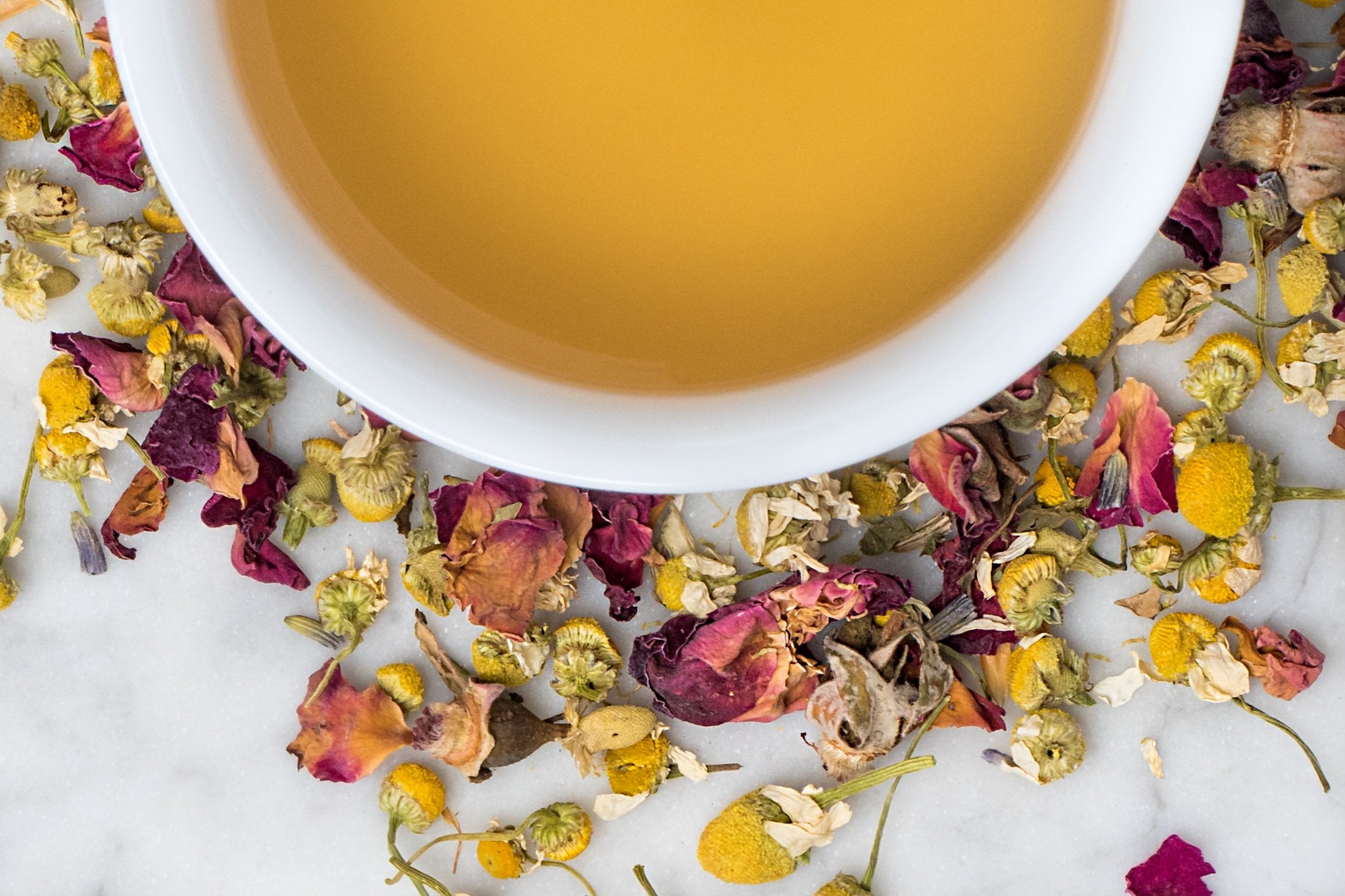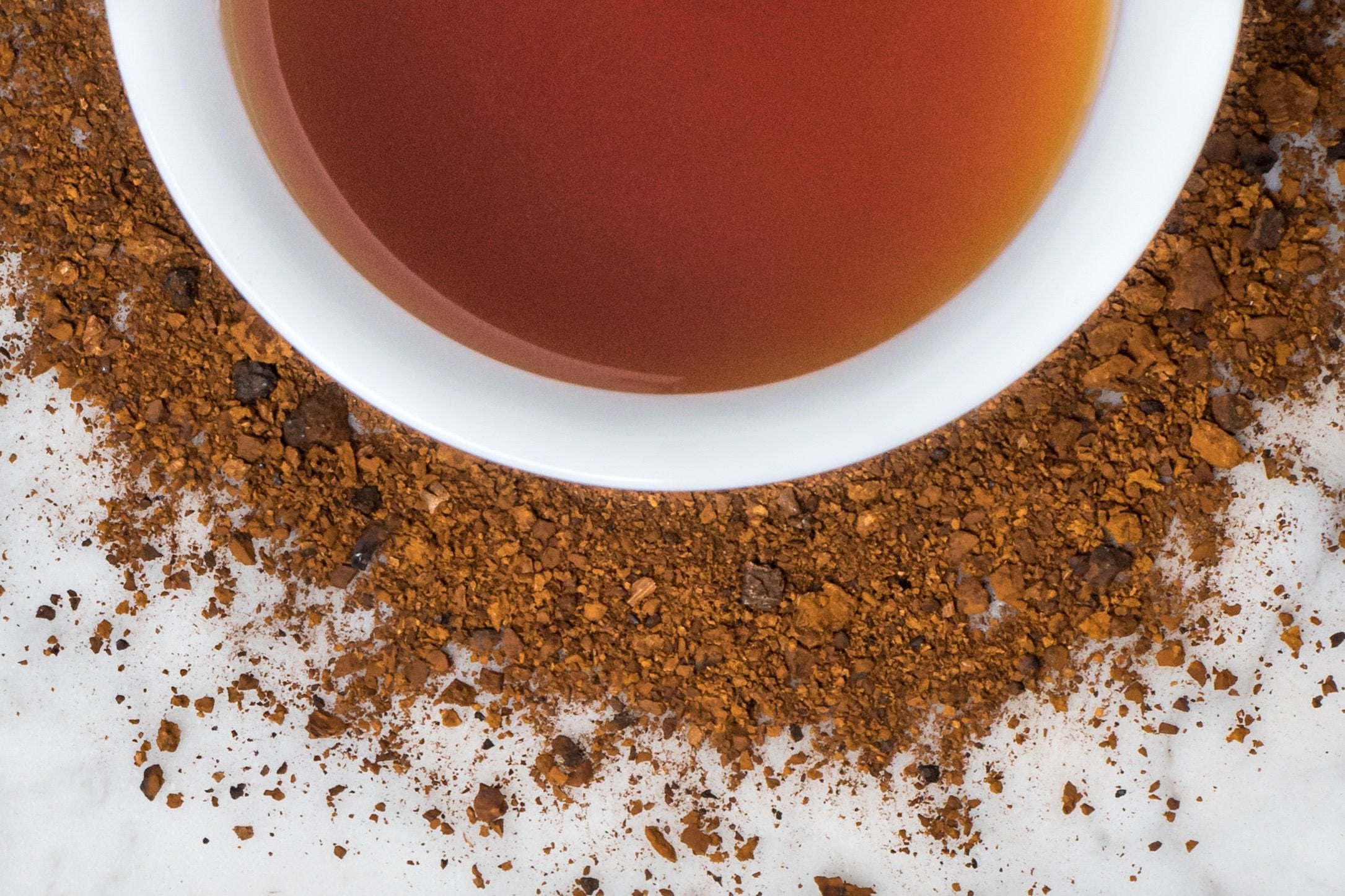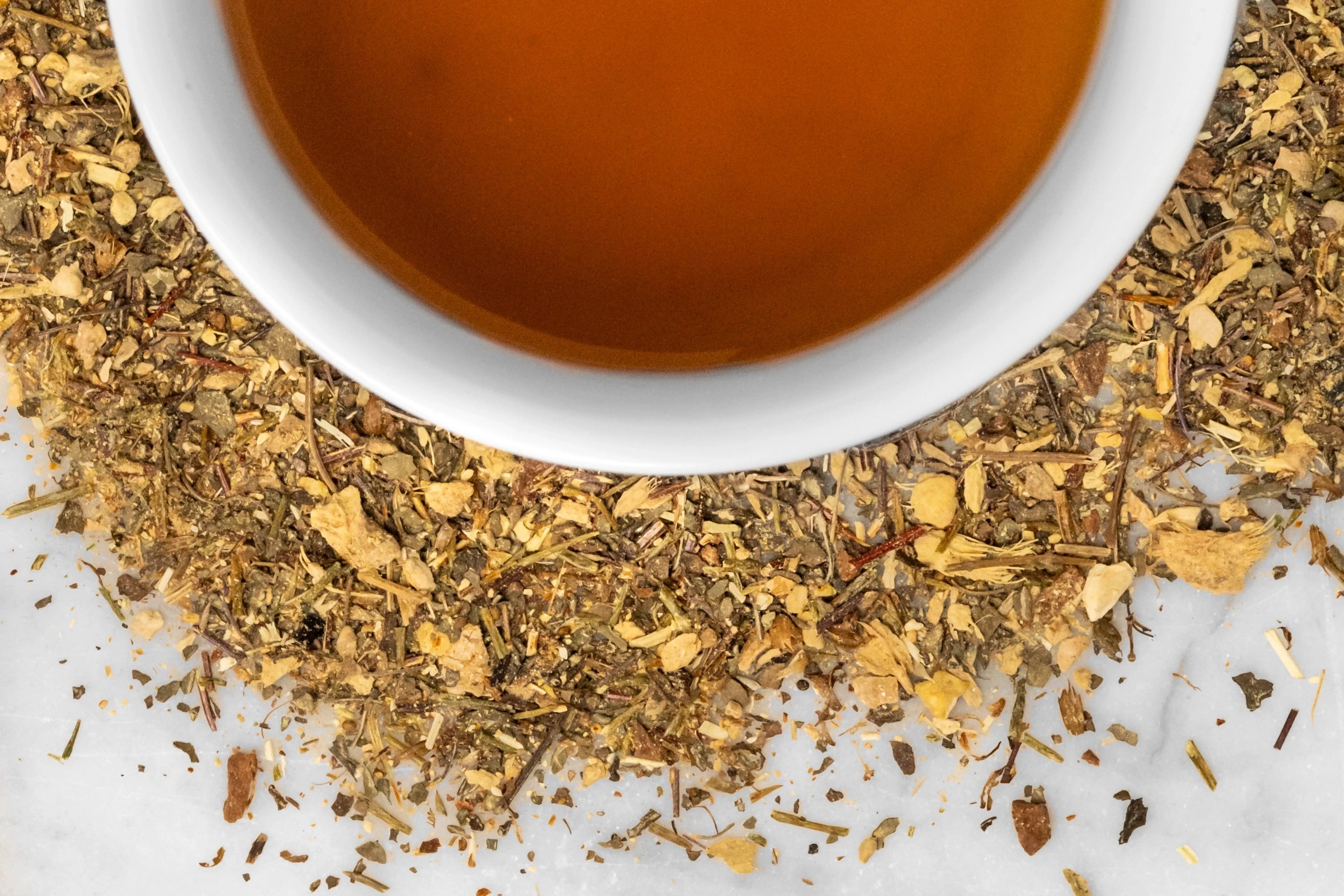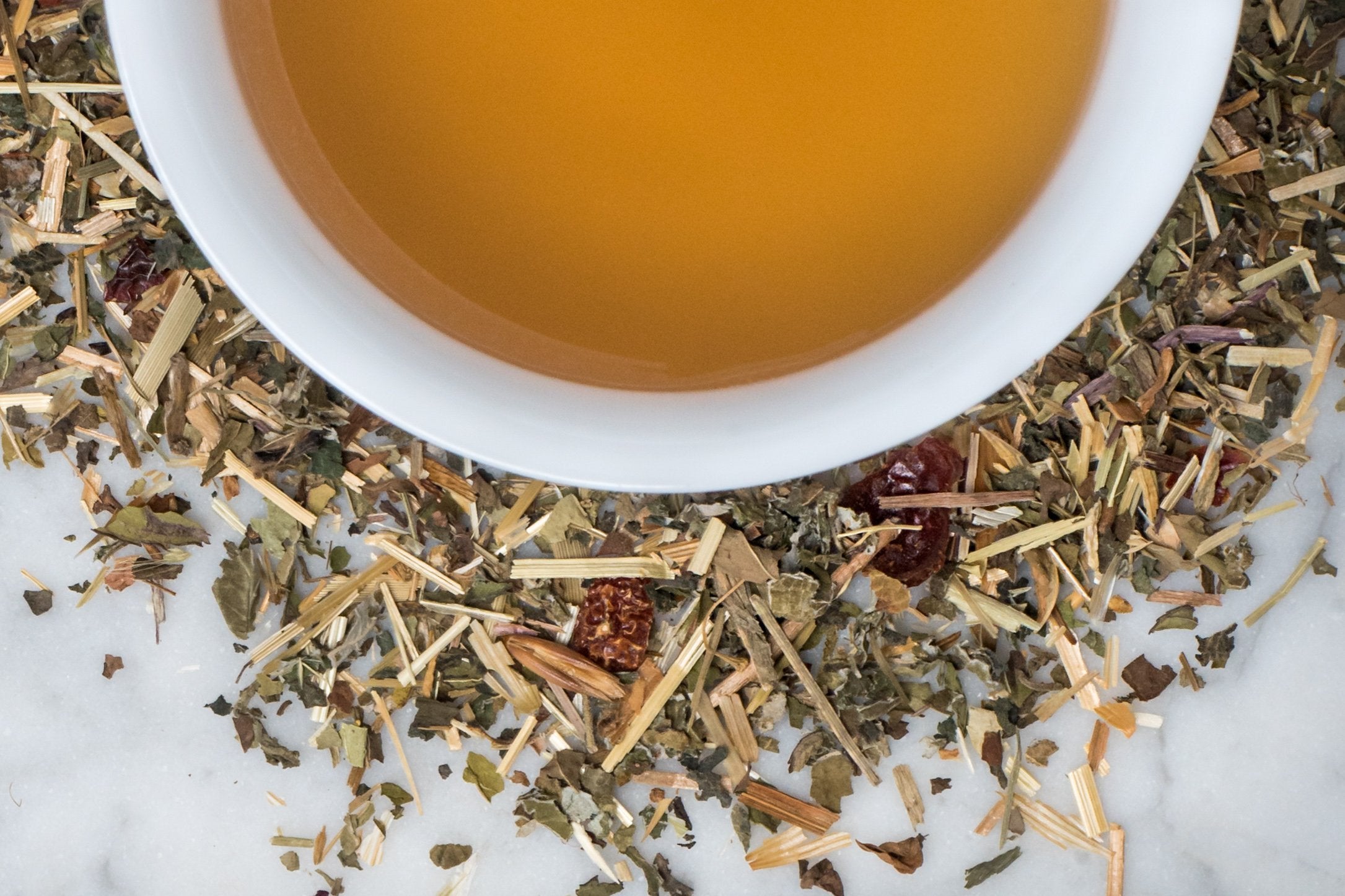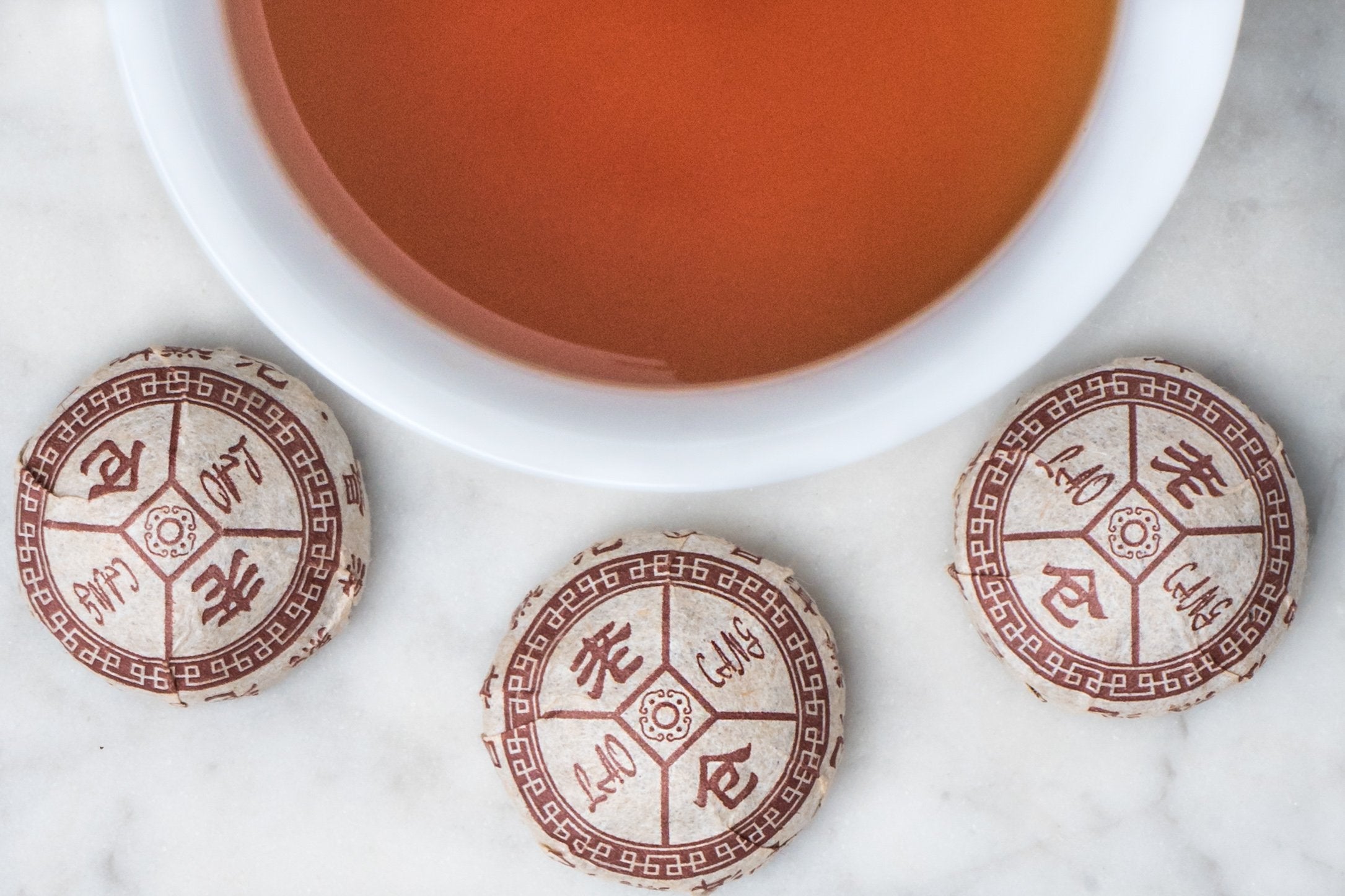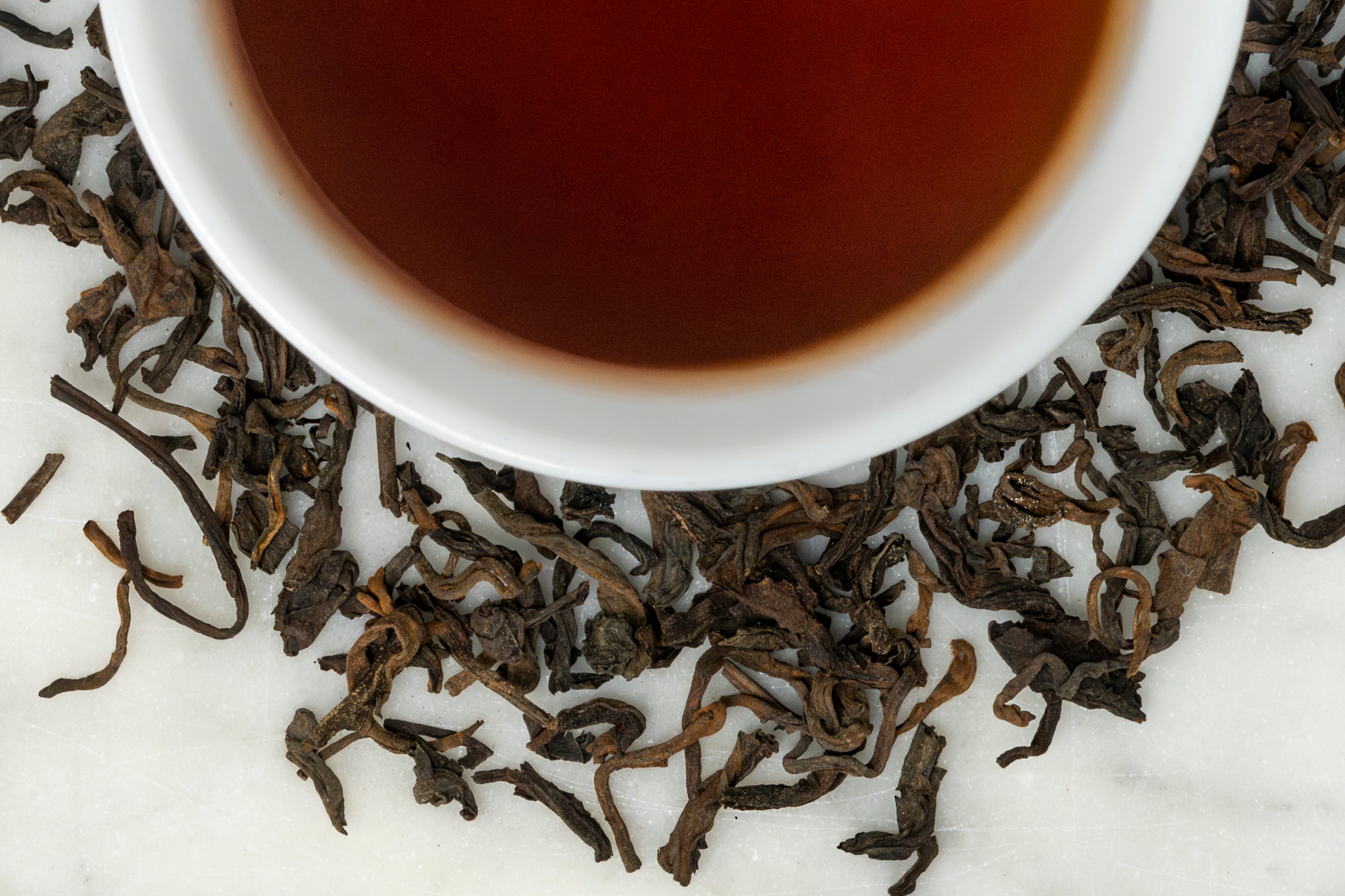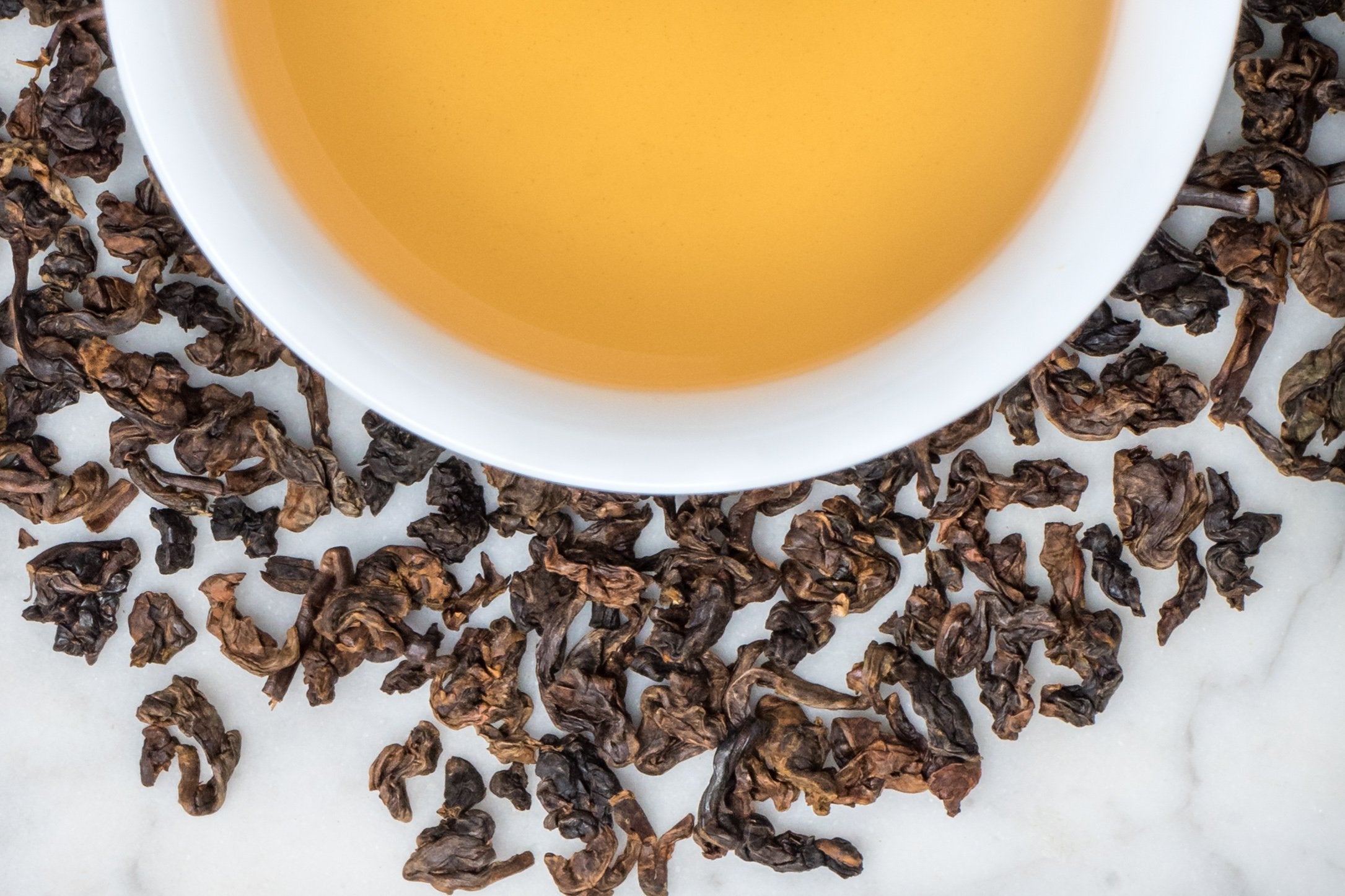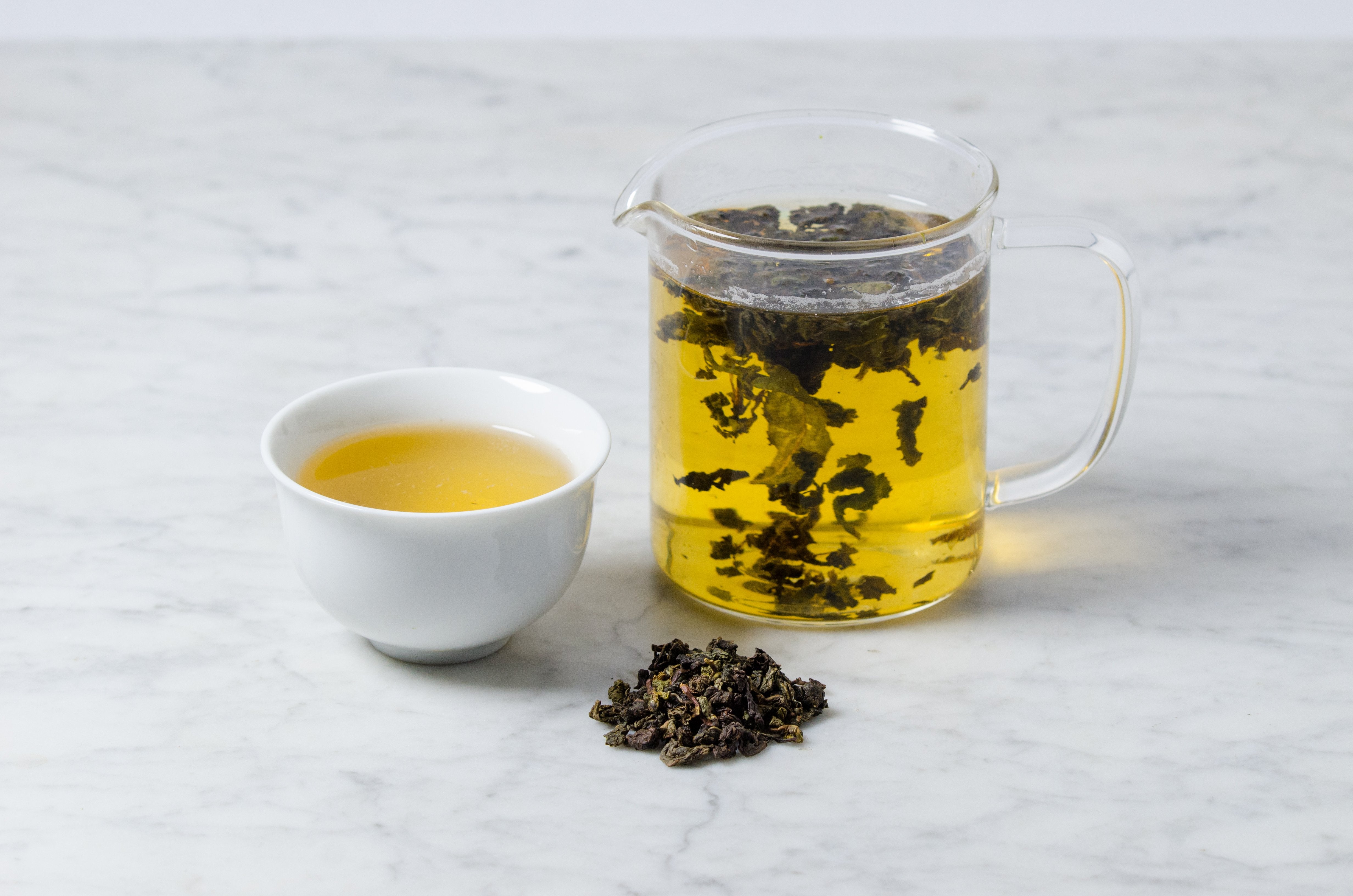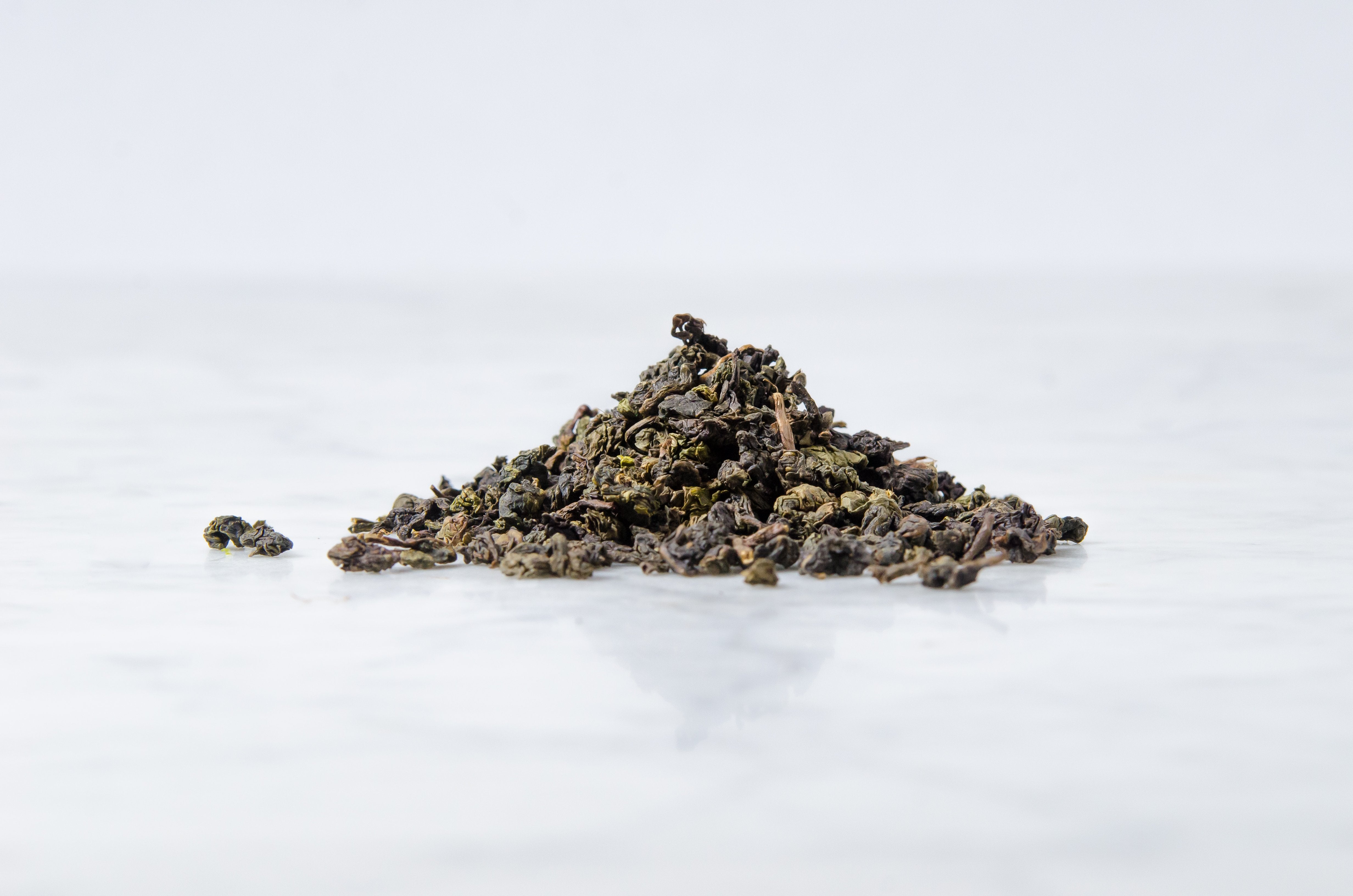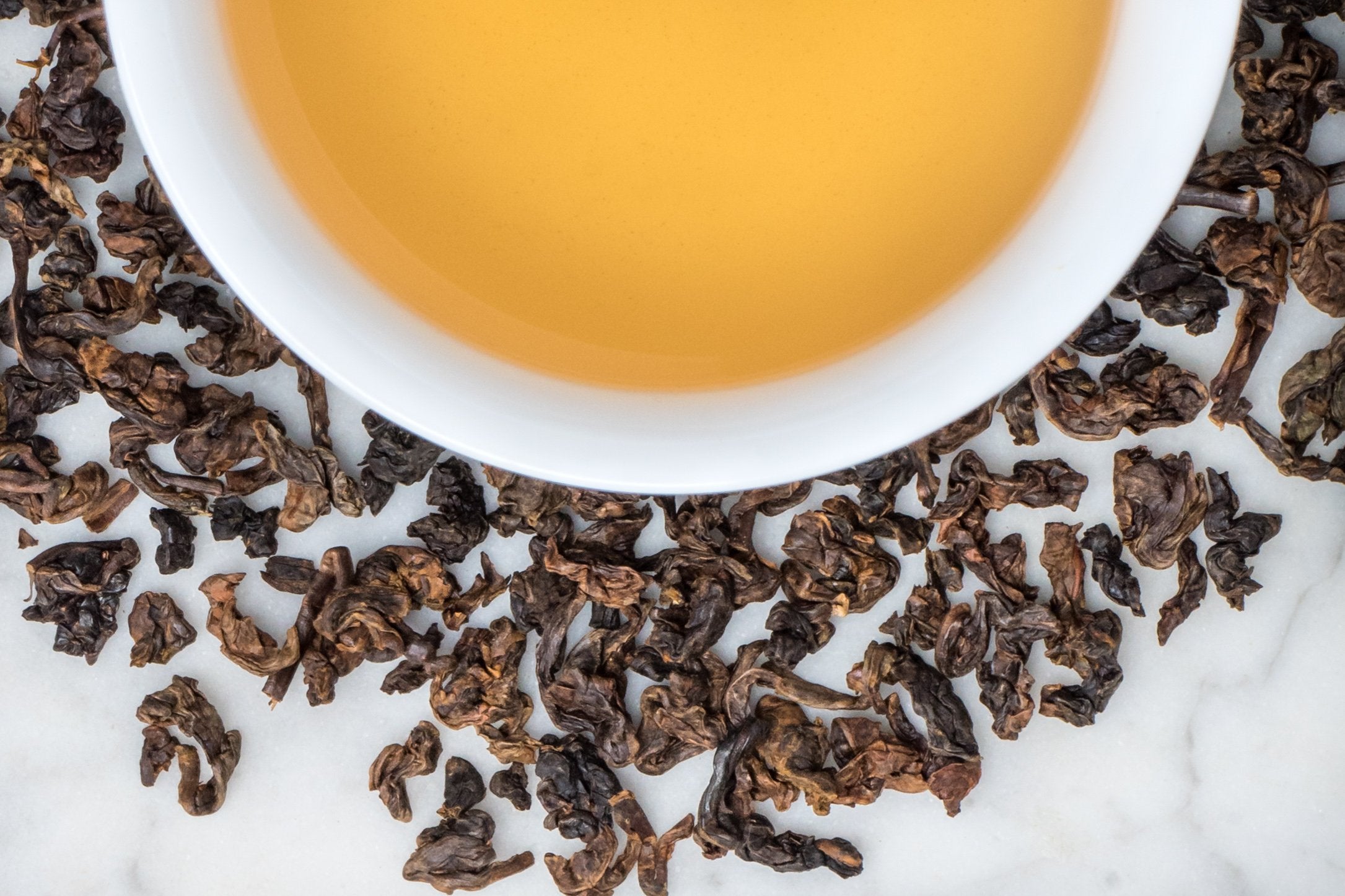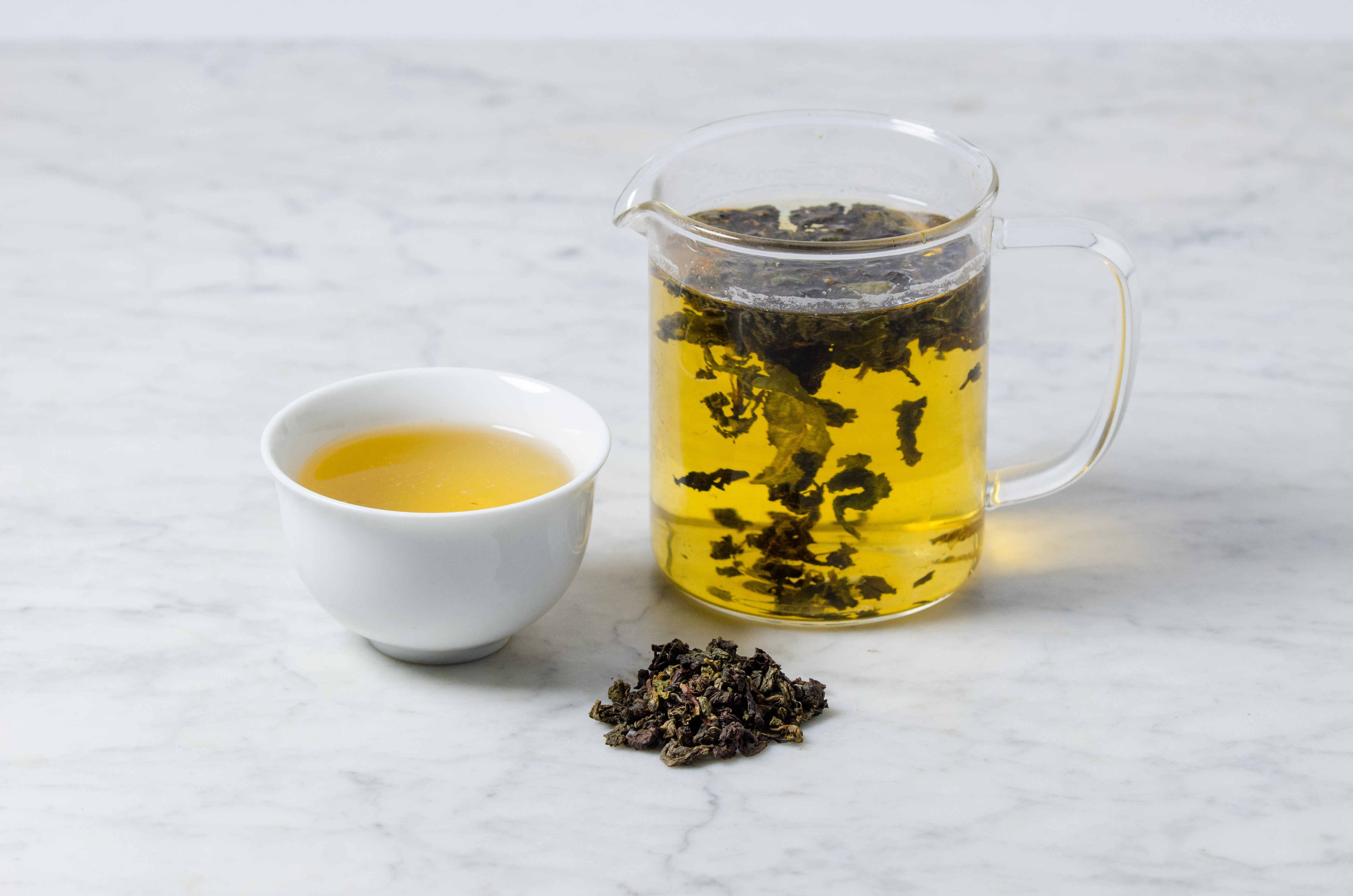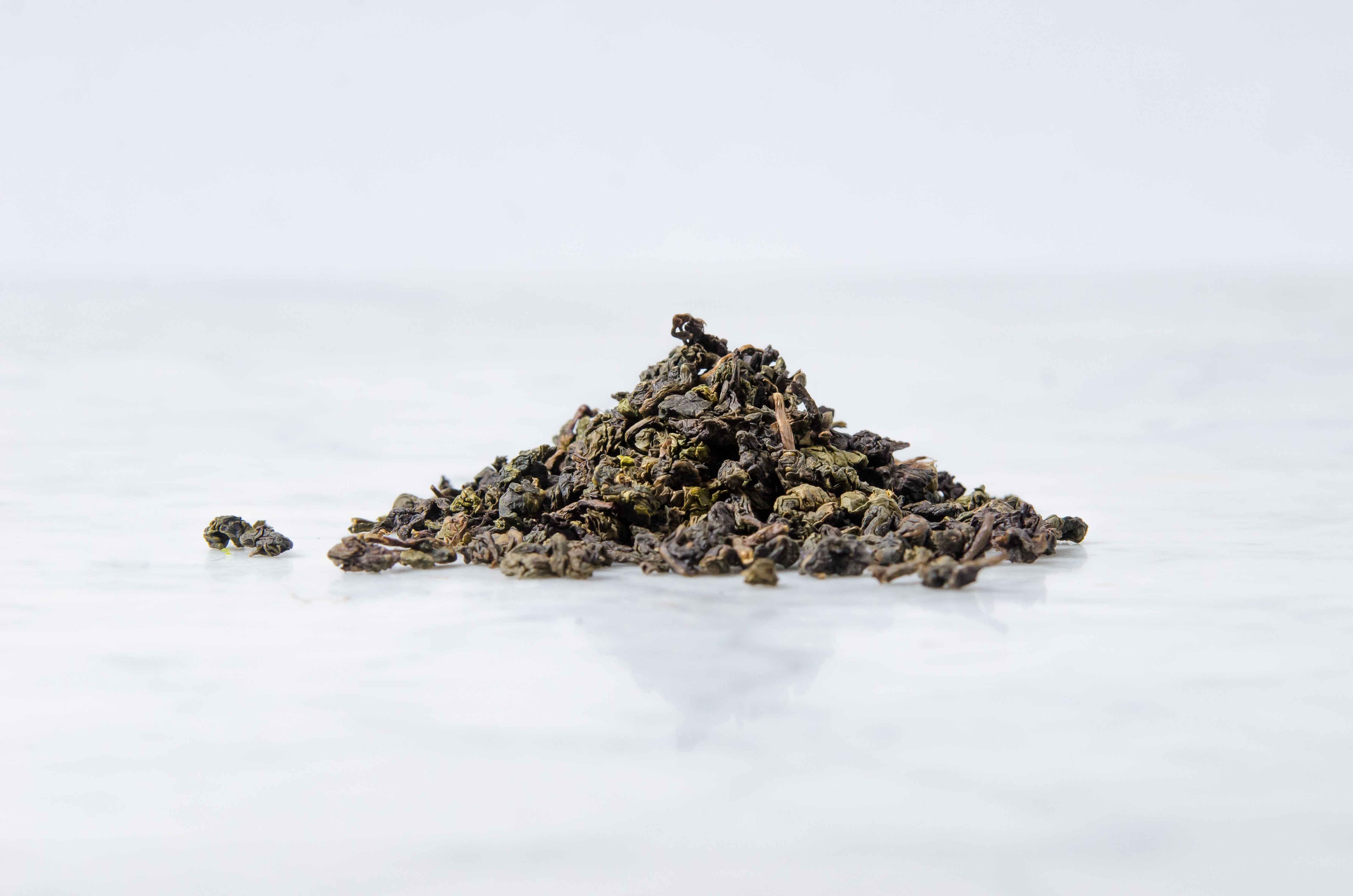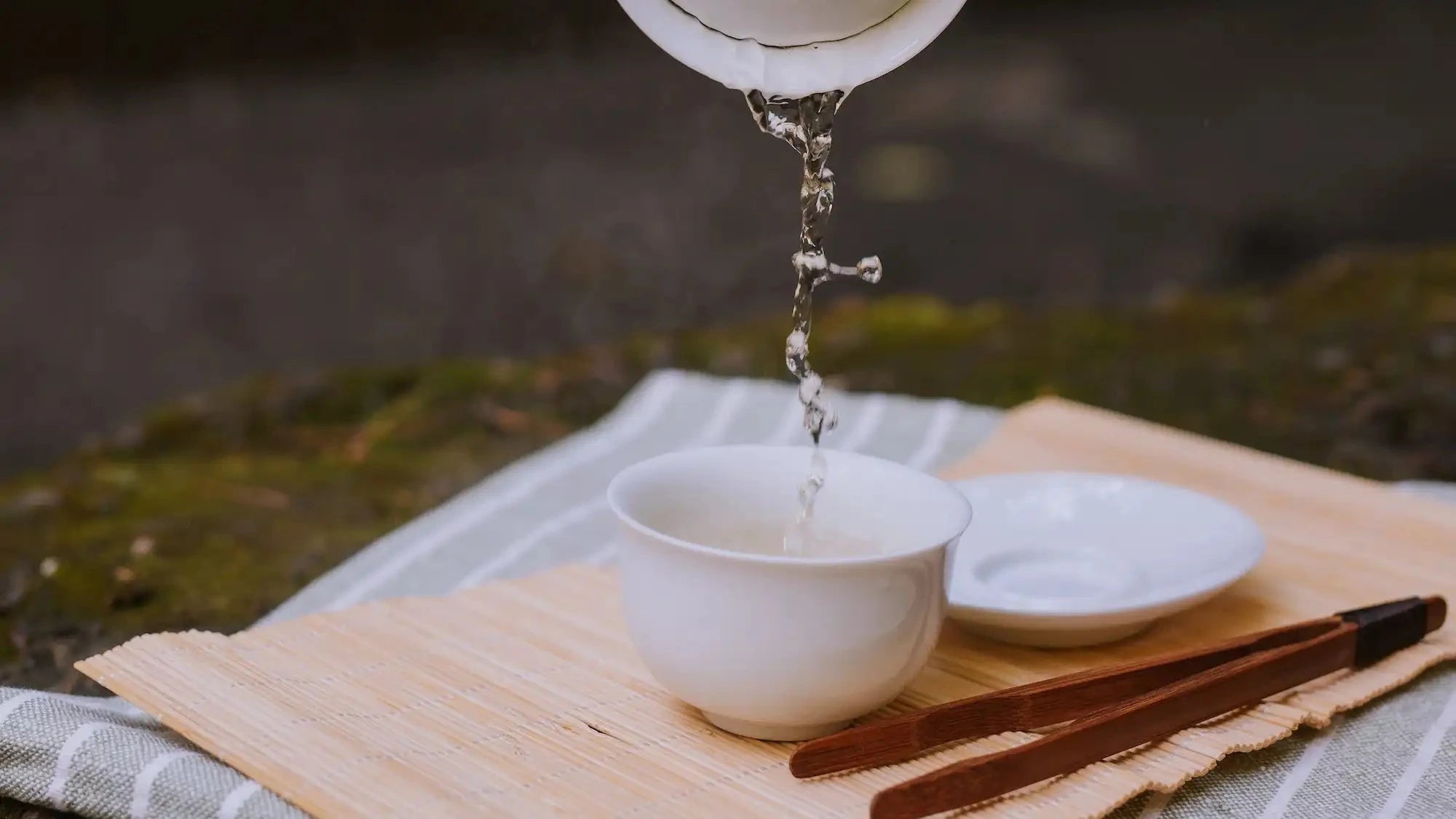How Much Caffeine is in Tea?
Ah, the dreaded question: how much caffeine is in X tea? A simple question with a complex answer, we will do our best in this article to give you insight into how much caffiene is in your favorite cup of tea... generally. If you want to get specific, it'll be time to break out your lab coat!
Does Tea have Caffeine?
In a few words: yes, all traditional tea has caffeine because all teas are made from the leaf of the camellia sinensis plant, which contains the chemical compound caffeine. Even decaffeinated traditional teas will contain residual caffeine and someone searching for a caffeine free tea should look towards naturally caffeine free alternatives like herbal tisanes and infusions.
Scroll to the end to see our chart of general caffeine levels in each type of traditional tea.
Let's Step Back a Moment & Define Tea
What is Tea?
Tea is fascinating because its definition is simultaneously broad and narrow. On the one hand, we think of tea as any delicious beverage made from steeping dried leaves in hot or cold water. On the other hand, there are so many different types of tea, how could this simple definition ever be enough?
The truth of the matter is that the definition really is that simple and that complex all at once. All tea (black tea, green tea, oolong, and right on down the line) comes from the same plant: camellia sinensis. Where they differ is in their production and steeping methods.
Because all types of tea derive from the tea tree, they all contain the stimulant caffeine. You may be familiar with the term herbal tea as a catch-all for naturally caffeine-free infusions. We generally use the term herbal tisane or herbal infusion to avoid any confusion and make the distinction between teas (which always contain caffeine due to their nature) and herbals (which do not necessarily contain caffeine).
Shop Caffeine-Free Herbal Tisanes
From $ 1.55
From $ 3.25
From $ 5.00
From $ 1.70
Is the Caffeine in Tea Better than the Caffeine in Coffee?
About the Caffeine in Tea
The story of caffeine in tea versus coffee is far more complicated than simply looking at milligrams on a chart. So, before we delve further into how much caffeine might be measured in your favorite cup of tea, we want to spend some time talking about how your body processes and reacts to the caffeine in tea. Hint: its affects may differ from the caffeine you're used to experiencing from coffee.
Chemically identical, nevertheless the caffeine in coffee and the caffeine in tea are experienced entirely differently by the body. This is due entirely to the other compounds and polyphenols found in the two drinks, as the caffeine in tea bonds differently with other substances than the caffeine in coffee. Specifically, caffeine bonds with the catechins (tannins) in tea, and the tannins then prevent the caffeine from being released rapidly into the body. Fans of matcha will recognize this as the "slow-release" effect that produces a longer and more stable caffeination than coffee.
Because of its interaction with other compounds in the tea, the caffeine in tea affects and interacts with the central nervous system and cardiovascular system entirely differently than the caffeine in coffee. The caffeine in coffee has a direct effect on blood circulation and therefore heart rate. In contrast, the caffeine in tea instead enlarges the diameter of the vessels in the cerebral cortex. In other words, the caffeine in tea is more of a stimulant than an excitant, sharpening the mind and decreasing fatigue (according to Tea: History, Terroirs, Varieties; Second Edition).
Shop Tea
From $ 1.75
From $ 4.00
From $ 1.55
From $ 3.25
The gang's all here
L-theanine & the Caffeine in Tea
Caffeine is not the only stimulant in tea. Tea also contains theophylline and theobromine (relatives of caffeine that stimulate the heart rate and increase bloodflow) and, most interestingly, L-theanine.
L-theanine is an amino acid that, like caffeine, can cross the blood-brain barrier to affect your central nervous system. Studies show that L-theanine increases the production of alpha waves in the brain, which are associated with alert relaxation, and may stimulate neurotransmitters like dopamine and GABA by acting as a glutamate inhibitor, further aiding in its relaxing effect on the mind and body. (This is part of why our Gabacha oolong is such a powerful tea for relaxation and focus!) The combination of caffeine and L-theanine in tea accounts for why tea is a natural mindfulness tool - these two powerhouse stimulants work in concert to increase cognitive performance and alertness without over-stimulating your central nervous system like coffee and other caffeinated beverages.
Gabacha
What Affects Caffeine Levels in Tea
Understanding Caffeine in Tea
How much caffeine is in any one particular cup of tea is going to depend on a variety of factors. The main variables to keep in mind are the ratio of tea to water, water temperature, and steep length. These factors are why many of the official studies looking at the caffeination levels in tea are misleading - they do not account for how people actually consume tea. For this reason, we look to the wonderful Tea: History, Terroirs, Varieties; Second Edition by Kevin Gascoyne, et al for our standard of caffeine levels in tea. Scientific studies are somewhat limited by the constraints of the scientific method - their variables must be controlled in order to compare apples to apples. It is not at all useful for our purposes, however, to compare a cup of green tea steeped at 212°F for 5 minutes to a cup of black tea steeped at 212°F for 5 minutes because that's simply not how you would prepare a cup of green tea. So, we will look to how these variables affect caffeination levels and what that means for your understanding of how much caffeine is in your favorite cup.
How ratios of tea to water affect caffeination
The more tea you use, the more caffeine you will extract because there is more caffeine available to be extracted. This principle explains why a traditional black tea will be more caffeinated than a scented black tea like our Istanbul Apple - the tea content in a cup of Istanbul apple is 'watered down' by the addition of cinnamon and apples to the overall weight and volume of tea used.
How water temperature affects caffeination
As mentioned above, one of the main issues with many studies into the caffeine levels of various teas is the temperature of water used to steep the tea. Caffeine is heat and water soluble, meaning that the hotter the water and the longer the steep time, the more caffeine you are going to extract.
How steep times affect caffeination
Studies show that the majority of caffeine in tea is released in the first 3 minutes of steeping. That said, caffeine still continues to release after the initial 3 minutes and it is not until around the 10 minute mark that the curve begins to level. For example, a 4.5 minute steep of the same Huiming green tea released 13mg of caffeine while a 10 minute infusion released 21mg. This is great news for tea drinkers who are looking to cut back on caffeine - they can simply discard their first steep and enjoy the lower caffeine second!
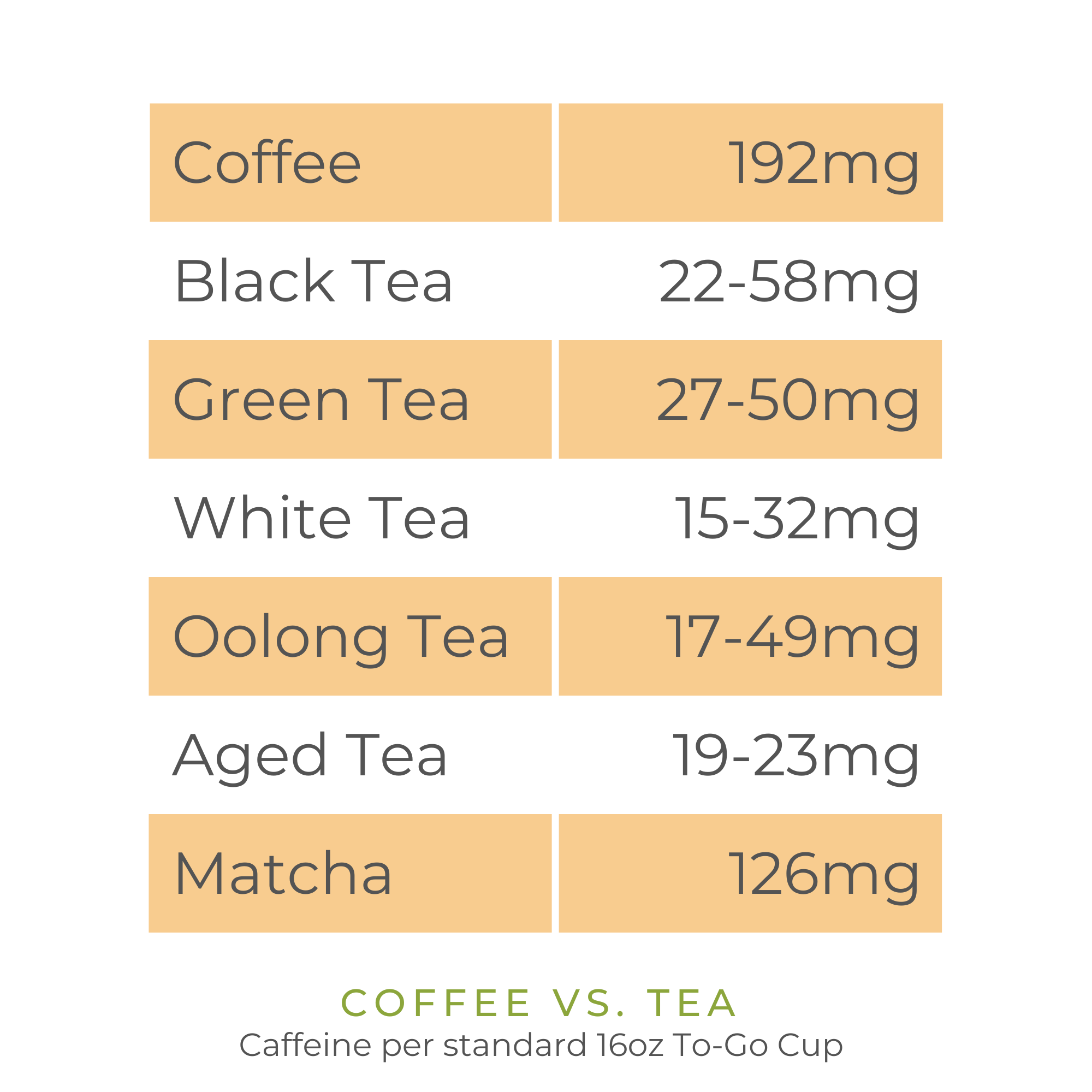
So, how much caffeine is in tea?
All traditional teas have caffeine, so any white, green, oolong, black, aged, or scented tea will contain some amount of caffeine. As discussed above, the caffeine content of your cup of tea will vary depending on the ratio of tea to water, steep time, and proportions of tea to scents (like the fruits in Strawberry Fields). This chart is a general guide to how much caffeine is likely in your cup of traditional tea based on typical steep times, temperatures, and ratios. The ranges given for each type of tea are typical though by no means exhaustive representations of that type of tea.
*Caffeine Content range based on liquid chromatography-UV of teas infused in a teapot with 2 cups water; matcha was whisked in a bowl with 1/2 cup of water.
Resources:
Gascoyne, K., Marchand, F., & Desharnais, J. (2013). Tea: History, Terroirs, Varieties (Second ed.). Firefly Books.
Giesbrecht, T., Rycroft , J. A., Rowson , M. J., & De Bruin, E. A. (n.d.). The combination of L-theanine and caffeine improves cognitive performance and increases subjective alertness. Nutritional neuroscience. Retrieved December 13, 2022, from https://pubmed.ncbi.nlm.nih.gov/21040626/
USDA. (n.d.). FoodData Central - Tea, hot, chai, with milk. FoodData Central. Retrieved February 25, 2021, from https://fdc.nal.usda.gov/fdc-app.html#/food-details/1104278/nutrients


